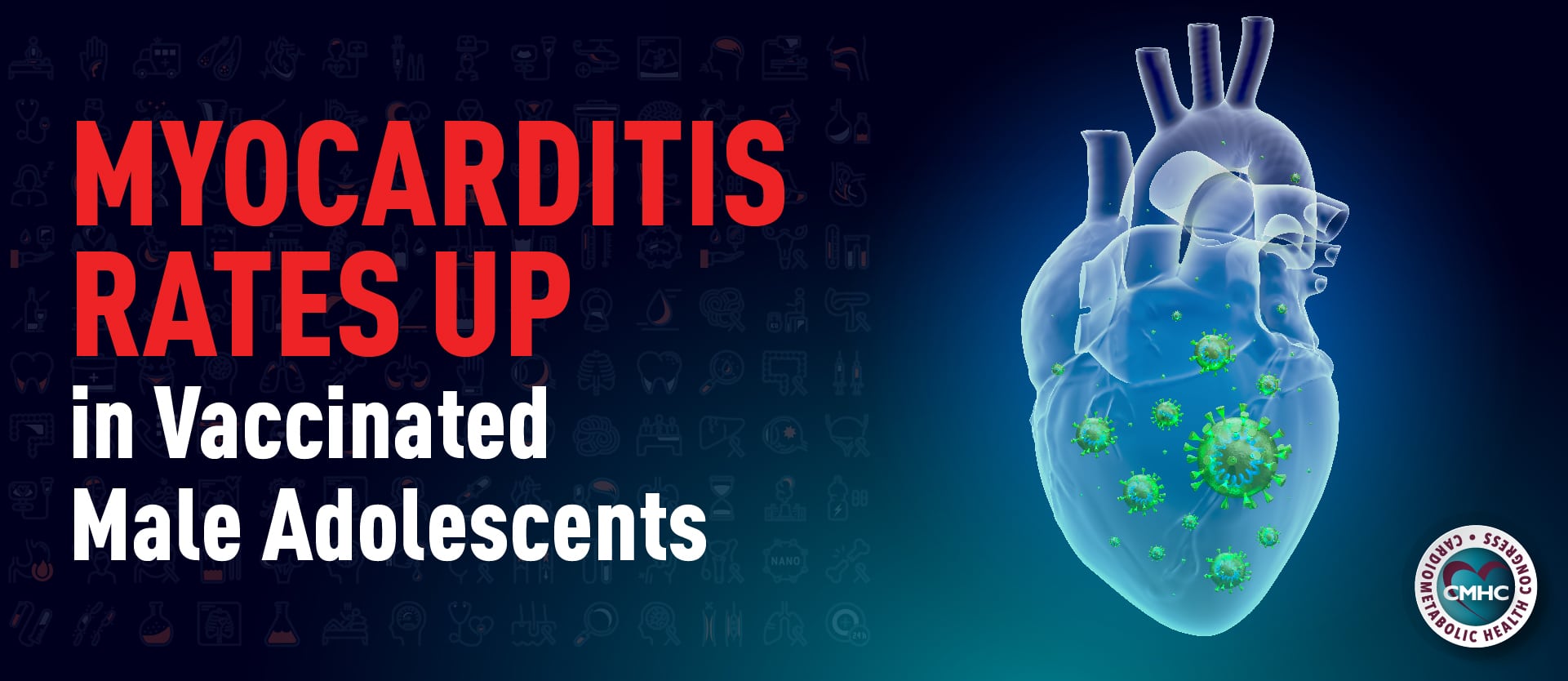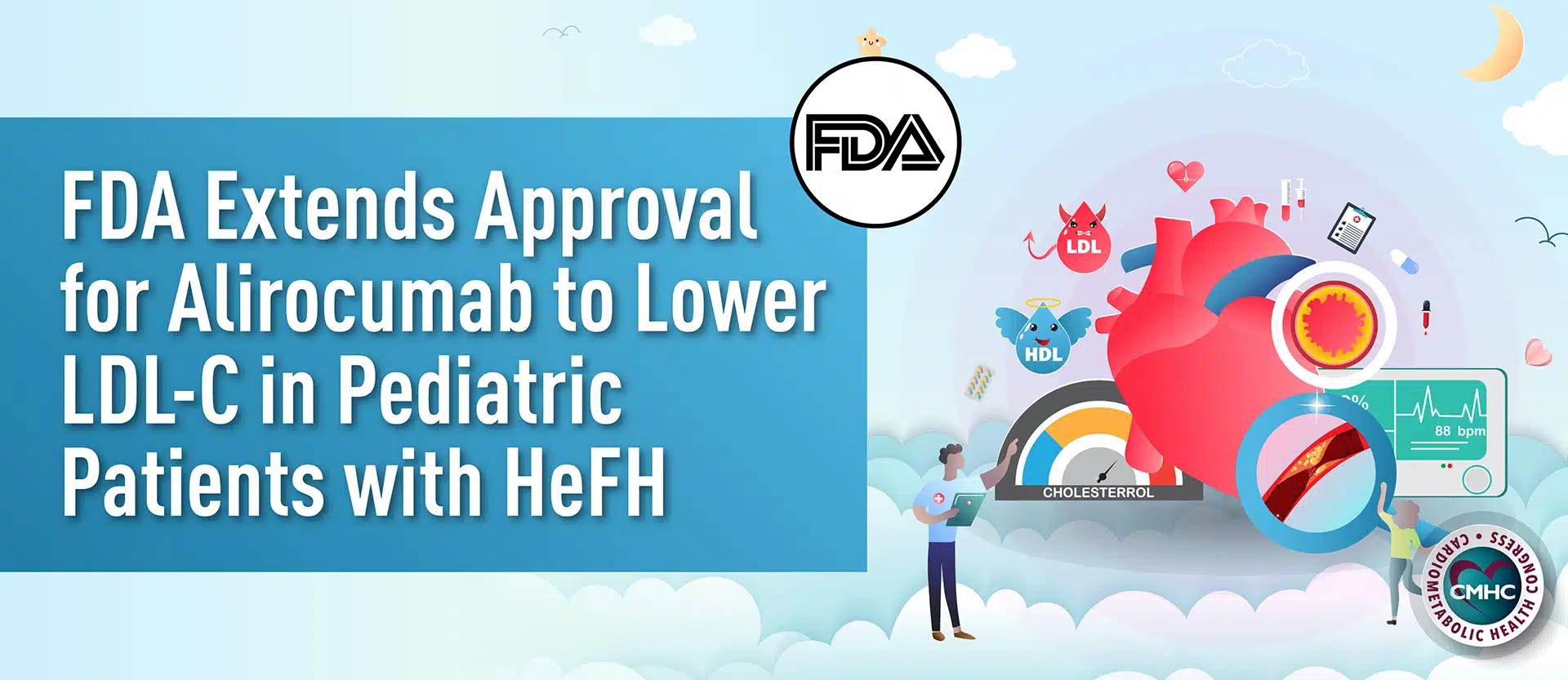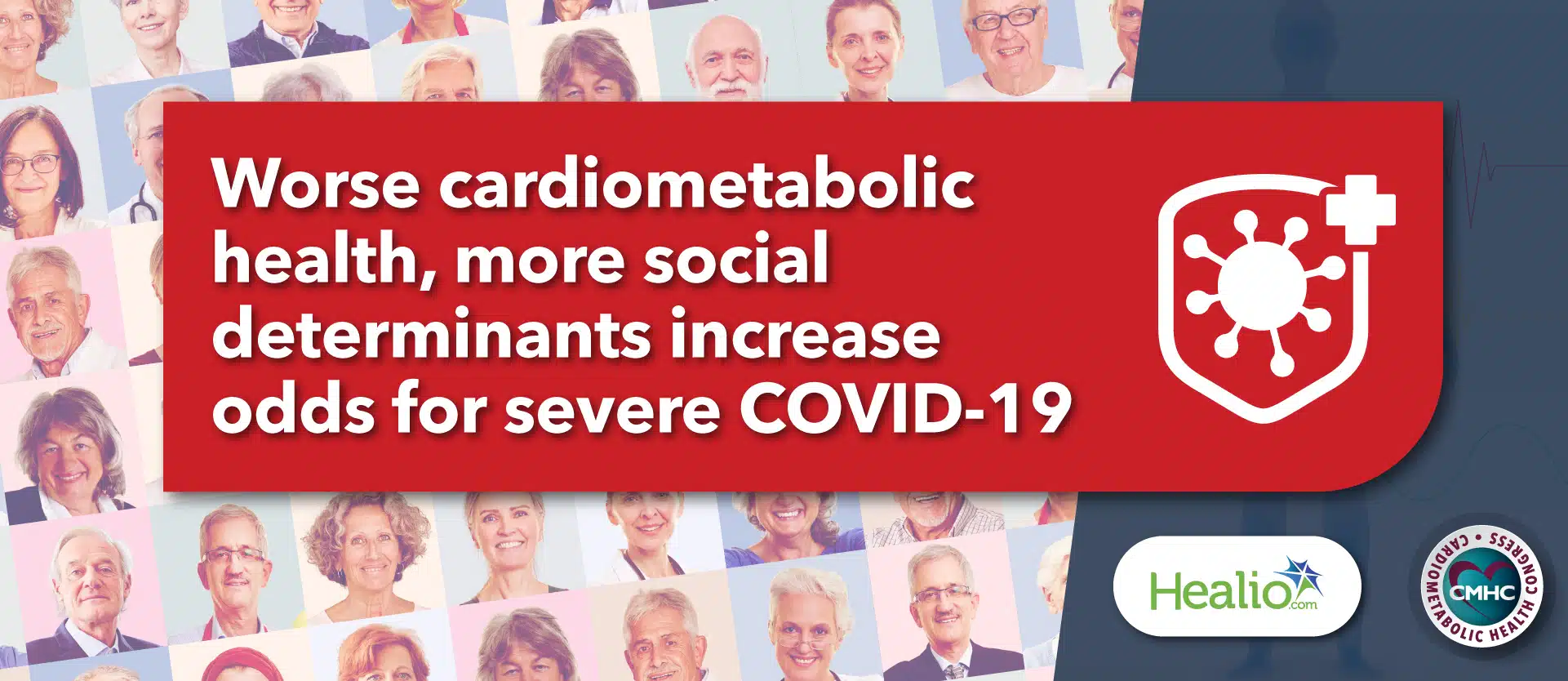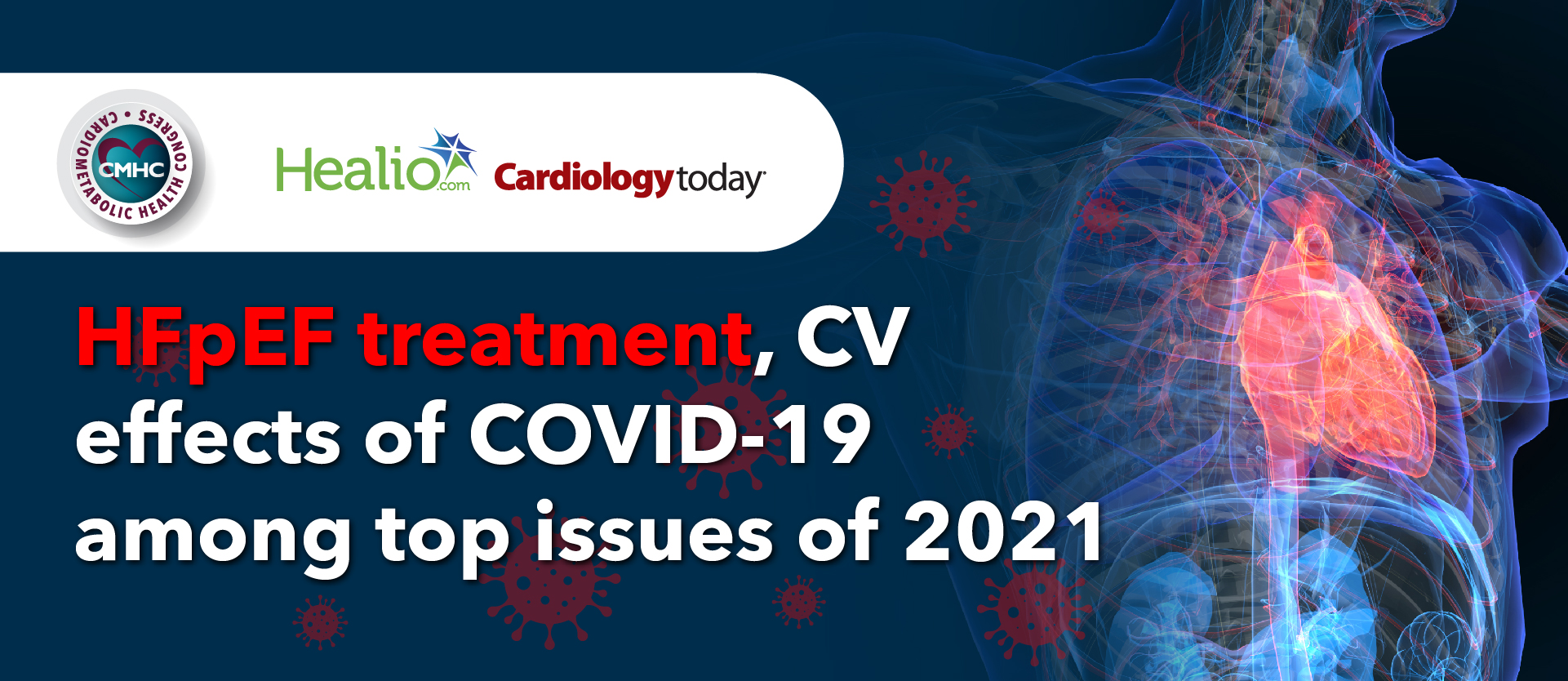The U.S. Centers for Disease Control and Prevention (CDC) and other health agencies are investigating a potential link between the COVID-19 vaccine and myocarditis. The condition has been reported at higher-than-usual rates in 12- to 39-year-old males within one week of receiving the second dose of the Pfizer or Moderna mRNA vaccine.
The U.S. Vaccine Adverse Event Reporting System (VAERS) vaccine safety monitoring system has reported an uptick in the number of patients experiencing heart inflammation, or myocarditis, after receiving mRNA COVID-19 vaccines. As of May 31, 2021, there were 475 reports of myocarditis among the recently vaccinated, primarily young men age 16 to 24, according VAERS data. Of the 475 cases, 226 met the CDC’s definition of a “working case” and will be investigated further through patient medical records.
Israel’s Health Ministry has also reported a suspected link to the condition in young men who have received the Pfizer vaccine. Israel has been administering the COVID-19 vaccine to people 16 years and older since January 2021 and has seen 200 cases of myocarditis in males between 16 and 30 years old in that time.
In June 2021 the American Academy of Pediatrics (AAP) journal Pediatrics published a case review of seven male patients ages 14 to 19 who developed symptomatic myocarditis within a week of receiving the second dose of Pfizer’s mRNA COVID-19 vaccine. Some patients were hospitalized but most had fully recovered by publication. The authors of the review advise further investigation to determine if the relationship is causal, considering the population of young adult and adolescent males in which these cases have been reported mirrors the demographic typically affected by myocarditis (unrelated to vaccination status).
What is myocarditis?
The muscular layer of the heart wall (myocardium) is responsible for pumping blood through the heart and out to the rest of the body. Myocarditis occurs when that muscle becomes inflamed, causing abnormal heartbeat (palpitations or arrhythmias), difficulty breathing or chest pain. The inflammation also makes it harder for the heart to effectively pump blood which can result in blood clots, heart attack, stroke or death.
According to the Myocarditis Foundation, the inflammation responsible for the condition is usually caused by the body’s natural immune response to an infection from a virus, bacteria, parasite or fungus, with viral infection being the most common cause. Myocarditis affects thousands of otherwise healthy individuals each year in the U.S. and is a believed to be responsible for up to 20% of sudden deaths in young people.
Diagnosis and treatment
The clinical evaluation of a patient with suspected myocarditis involves imaging tests (MRI, chest X-ray, echocardiogram or electrocardiogram) and blood tests (troponin level, C-reactive protein or erythrocyte sedimentation rate). Most cases resolve on their own with rest and no other
intervention. More serious cases may require drugs to correct abnormal heart rhythm or prevent clots.
Rarely, very serious cases of myocarditis require invasive measures such as ventricular assist device, intra-aortic balloon pump, or for a patient to be placed on an extracorporeal membrane oxygenation (ECMO) machine to take over the work of the heart while waiting for another treatment, such as heart transplant.
Provider recommendations
The CDC advises primary physicians seek a cardiology consult for evaluation, diagnosis and management for any recently vaccinated person presenting with chest pain, elevated serum troponin, abnormal ECG or MRI. The AAP stresses that myocarditis cases post-vaccination are rare, overwhelmingly mild, and have resolved with little or no intervention.
The APP further states that pediatricians should be mindful that the benefits of vaccination far outweigh the potential risks and continue to recommend vaccination to all patients 12 years and older, as recent data suggests that adolescents represent a growing proportion of new COVID-19 cases and contribute significantly to household transmission.
Reporting suspected adverse reactions to vaccines
Safety experts are always looking for any potential side effects related to a new vaccine. In order to provide confidence and transparency to the public, providers and patients are urged to “report clinically important adverse events that occur after vaccination of adults and children, even if you are not sure whether the vaccine caused the adverse event.” The best way to report a suspected reaction to a vaccine is by using the VAERS online form – the CDC is monitoring this data closely and timely submission will inform any new or updated guidance.
The statistical significance
About 6.5 million doses of the Pfizer vaccine have been administered to adolescents in the U.S. as of May 28, 2021. The 226 cases of myocarditis confirmed by the CDC means the percentage of vaccinated people experiencing this complication is less than .004%. More than 90% of these were mild cases and no deaths have been reported. To put those statistics into perspective, more than 4 million COVID-19 cases have been diagnosed in children under 18, resulting in over 15,000 hospitalizations and between 300 and 600 deaths in the U.S.
Next steps to determine safety
The CDC advises physicians to be aware of myocarditis symptoms in their patients post-vaccination, particularly in younger males. It noted that all reports of the condition followed Pfizer or Moderna (mRNA) vaccines, but not the Johnson & Johnson (adenovirus) vaccine.
The CDC’s Advisory Committee on Immunization Practices has scheduled an emergency meeting for June 18, 2021, to assess the potential risks of myocarditis after mRNA vaccine. The agenda includes a risk-benefit discussion and an overview of the VAERS data on adolescents and young adults to inform their recommendations.
The European Medicines Agency’s Pharmacovigilance Risk Assessment Committee is also investigating reports of myocarditis, requesting data from both Pfizer and Moderna, and expected to finalize its review in July 2021.
For their part, Moderna and Pfizer have both issued statements confirming they’ll work with public health and regulatory agencies to investigate the claims, but that no causal association between myocarditis and either company’s vaccine has been established.
Takeaway
The severity of the COVID-19 pandemic necessitated swift development, production and administration of an effective vaccine. The scientific and public health communities agreed that the benefits of fast-tracking vaccine candidates outweighed the risks of rare adverse events, which are possible with any biological treatment. With roughly 30,000 to 45,000 participants in each of the three approved manufacturer vaccine trials, the samples were robust enough to instill confidence but not large enough to detect unfavorable outcomes so rare they occur in less than one in 100,000 doses. Given the small incidence and typically mild presentation of myocarditis cases in some vaccinated individuals, the CDC and AAP continue to recommend that all eligible individuals be vaccinated.
Bottom line
The small risk of myocarditis, if shown to be causally linked to the COVID-19 vaccine, must be considered in the larger scope of the 33 million diagnosed cases and 597,000 COVID-19 deaths in the U.S.
Sources: https://www.aappublications.org/news/2021/06/10/covid-vaccine-myocarditis-rates-061021 https://www.medpagetoday.com/special-reports/exclusives/93040?xid=nl_covidupdate_2021-06-11&eun=g1788357d0r&utm_source=Sailthru&utm_medium=email&utm_campaign=DailyUpdate_061121&utm_term=NL_Gen_Int_Daily_News_Update_active https://www.healthline.com/health/heart-disease/myocarditis#TOC_TITLE_HDR_1 https://www.reuters.com/world/us/cdc-heart-inflammation-cases-ages-16-24-higher-than-expected-after-mrna-covid-19-2021-06-10/ https://www.mayoclinic.org/diseases-conditions/myocarditis/diagnosis-treatment/drc-20352544 https://www.physiciansweekly.com/covid-19-small-case-series-details-myocarditis-in-teens-post-vaccination https://www.cdc.gov/vaccines/acip/meetings/downloads/agenda-archive/agenda-2021-06-18-508.pdf https://www.fda.gov/media/150054/download#page=1 http://www.keweenawreport.com/featured/israel-says-pfizer-vaccine-probably-causes-myocarditis-in-young-men-2/








